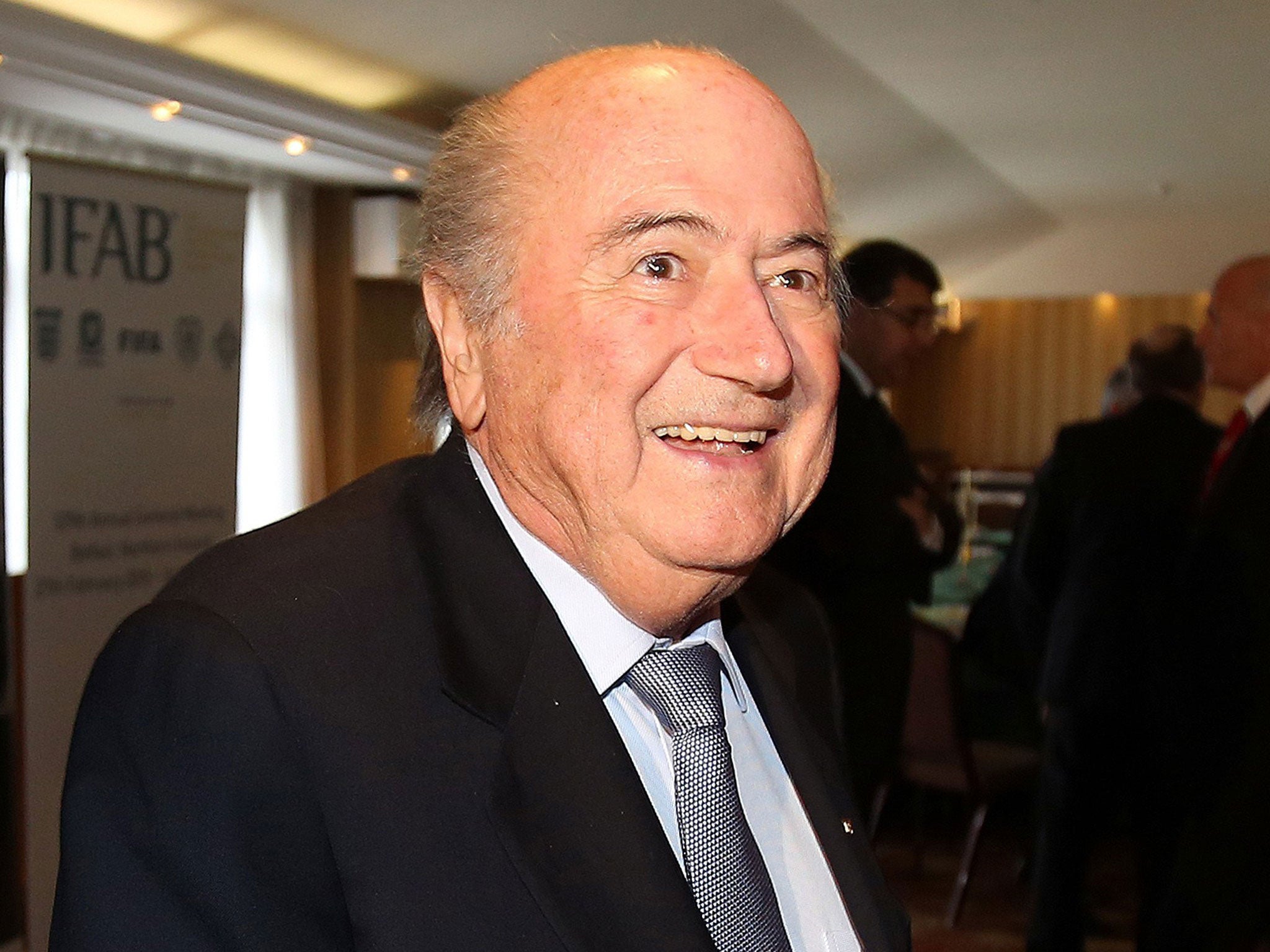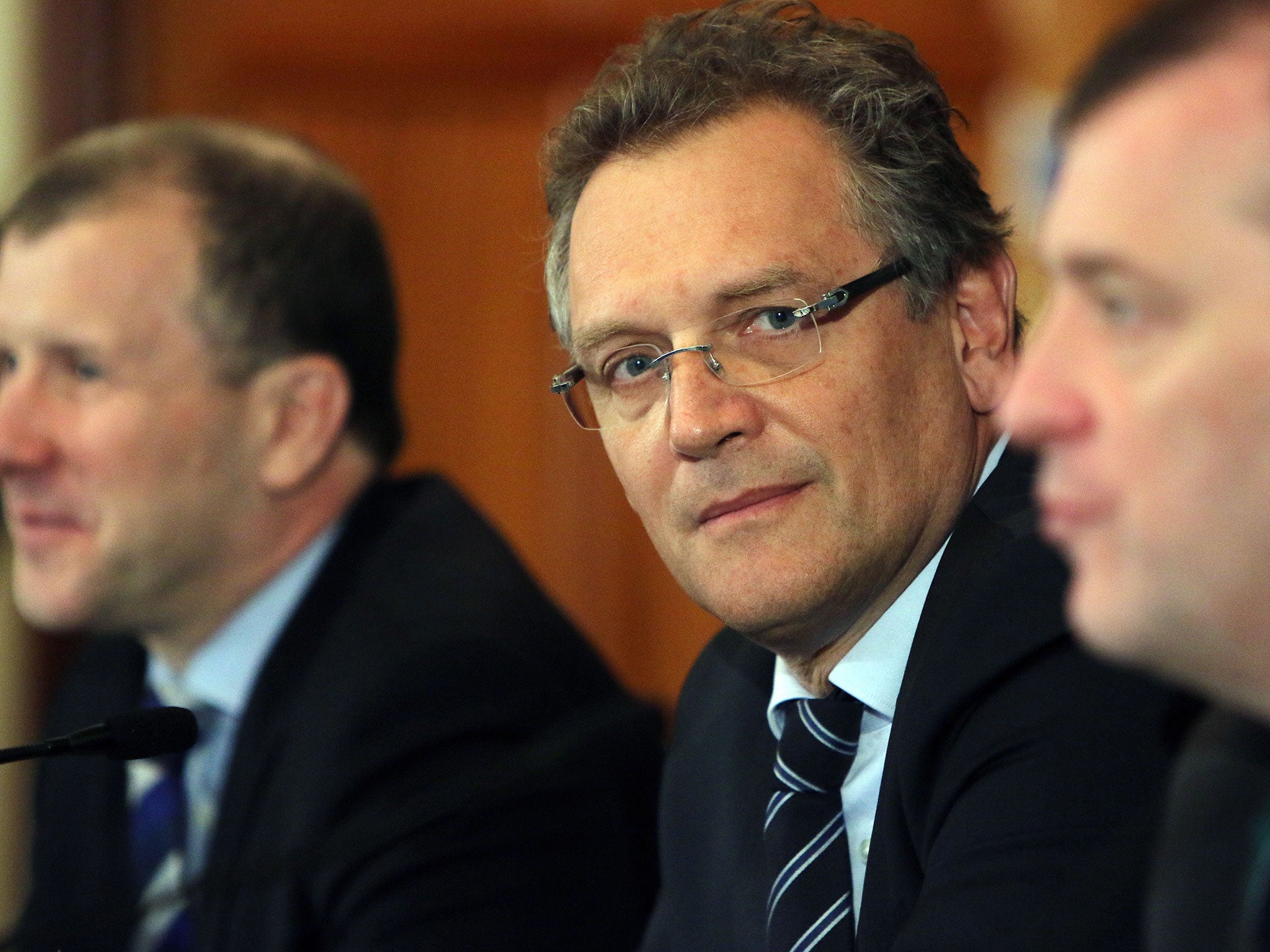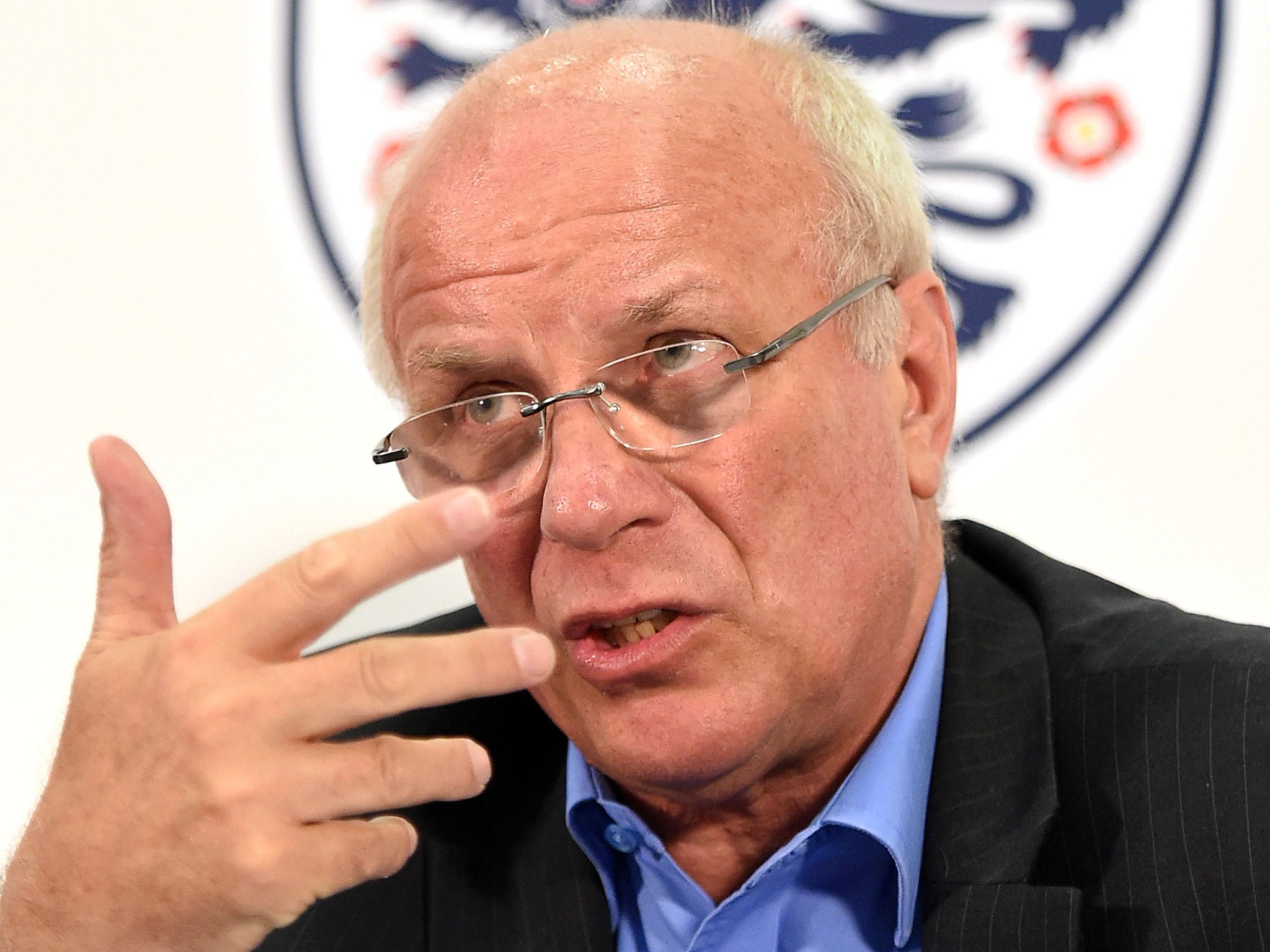The Last Word: For the good of the game: why on earth don’t we leave Fifa?
Is there any reason to tolerate an organisation whose self-parodic mission statement (“For the Good of the Game”) insults the intelligence

Mahatma Gandhi had a pauper’s possessions and the spiritual strength to become the founding father of the world’s second most populous nation, India. His life crystallised the power of principle, and his assassination confirmed its price.
Such great men and lofty ideals do not usually feature here in the toy department, but please forgive the indulgence. Though it would be inexcusably trite to draw a direct parallel, his teachings have a certain resonance in the gaudy, amoral sideshow of modern sport.
Try applying one of his most famous sayings – “A no uttered from the deepest conviction is better than a yes uttered merely to please, or worse, to avoid trouble” – to sport’s greatest excrescence, Fifa the body which controls world football.
Is there any reason to tolerate an organisation whose self-parodic mission statement (“For the Good of the Game”) insults the intelligence? Can there be any justification for the institutionalised corruption, casual venality and political pretension it represents?
Should a football tournament, however cherished or storied, be permitted to challenge the conscience by being played in a state built on slave labour, Qatar? Must it be staged in Russia, a nation where racism is so endemic there are already fears for the safety of black fans attending the 2018 World Cup?
Any sentient being, answering such questions, would say “No”.
Yet conventional wisdom decrees there is no alternative to the cartoon cynicism of Sepp Blatter, and the menacing arrogance of such acolytes as his secretary general, Jérôme Valcke.

Such pessimism has been borne out by acceptance of the charade which will lead to the 2022 World Cup being played in the run-up to Christmas. Debate about the merits of a decision signalled by Blatter as long ago as January 2011 was duly reduced to its lowest common denominator, money.
Valcke effectively admitted Fifa bought off the threat of legal action by awarding US TV rights to the 2026 tournament to Fox and NBC-owned Telemundo without a tender. Haggling over compensation payments to European clubs and their respective Leagues will doubtlessly be settled in similar fashion. Greed will be portrayed as progress. Old lies will acquire new lustre. Familiar figures, untouched and unrepentant, will continue to wield iniquitous influence. Uefa, under the leadership of Blatter Lite, Michel Platini, has already protected the Champions League through a strategy of expedient cowardice. We in the media will continue to give undue credibility to the farce of Fifa’s presidential election.
It need not be this way. Should Greg Dyke, the FA chairman, wish to be remembered within football as anything other than a superficial sloganeer he should act upon another of Gandhi’s most profound instructions: “Be the change that you want to see in the world”.
His antipathy towards the likes of Blatter is understandable and obvious. It will only be relevant if he announces England’s intention to lead a breakaway from Fifa. Fundamental change will not be an evolutionary process; it necessitates revolution. Appeasement is counterproductive.
Britain’s inflated presence in Fifa, an anomalous historical gesture of respect to the game’s birthplace, is pointless. The home nations are already regarded as the enemy within by the self-serving quasi-statesmen who have, for too long, been treated with exaggerated, illogical respect.
There is no better time to outline the benefits of secession, since Fifa’s circus has pitched its tent in Belfast this weekend for the annual meeting of Ifab, the anachronistic rule-making body which is presented as a fig leaf of unanimity. Dyke and David Gill, one of the few administrators of suitable substance, lead the FA’s delegation.

Blatter, with typical opportunism, has already used the meeting as a platform for cheap popularity by insisting he would not countenance staging the World Cup final later than 18 December. Entirely coincidentally, this is Qatar’s National Day. It also gives Santa Scudamore the chance to deliver the present of Premier League football throughout the festive season.
Despite such predictable manoeuvring, other major European nations, such as Germany, Spain and Italy, have a vested interest in establishing a new world order. Emerging power bases in Asia, Africa and South America are also natural allies, if the will exists to challenge corruption in their respective federations. This is an opportunity to act ahead of the curve. Modern sport is changing quickly, and the process of revision will accelerate. The obscenity of Qatar will eventually be seen as one of its most significant tipping points, alongside that of the consequences of technological advancement.
Domestic rugby is toying with the type of closed shop which sustains baseball, basketball and gridiron in the US. Cricket’s traditional commitment to Test competition is being eroded by the commercial imperatives of Indian administrators and their apologists in England and Australia. The Olympic Games are being reshaped, to reduce the average age of the audience.
Football’s current boom will be unsustainable once it becomes unworkable to pursue illegal streaming outlets, and millions of satellite subscribers resist unnecessarily funding multimillionaire players and their retinues. Like the music business, it will be forced to adopt a radically different model.
A streamlined system, restarted from a firm philosophical base, offers the prospect of long-term stability. There will be short-term posturing and penalties from those with most to lose, but new competitions, at both club and international level, will survive and thrive.
Fifa is essentially parasitic. It contributes nothing and banks billions by sanctioning events which pander to the marketing strategies and budgets of multinational corporations. Sponsors are slowly becoming attuned to the dangers of reputational damage by association, and would profit from realignment. Bitter experience suggests a breakaway will probably not happen, but that misses the point.
To borrow another of Gandhi’s immortal observations: “To believe in something, and not to live it, is dishonest.”
Join our commenting forum
Join thought-provoking conversations, follow other Independent readers and see their replies
Comments
Bookmark popover
Removed from bookmarks